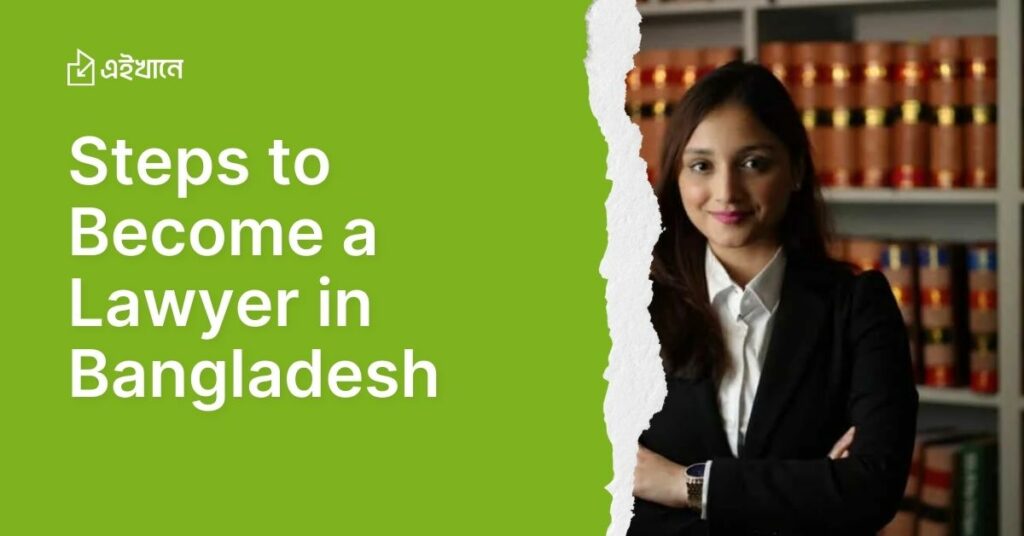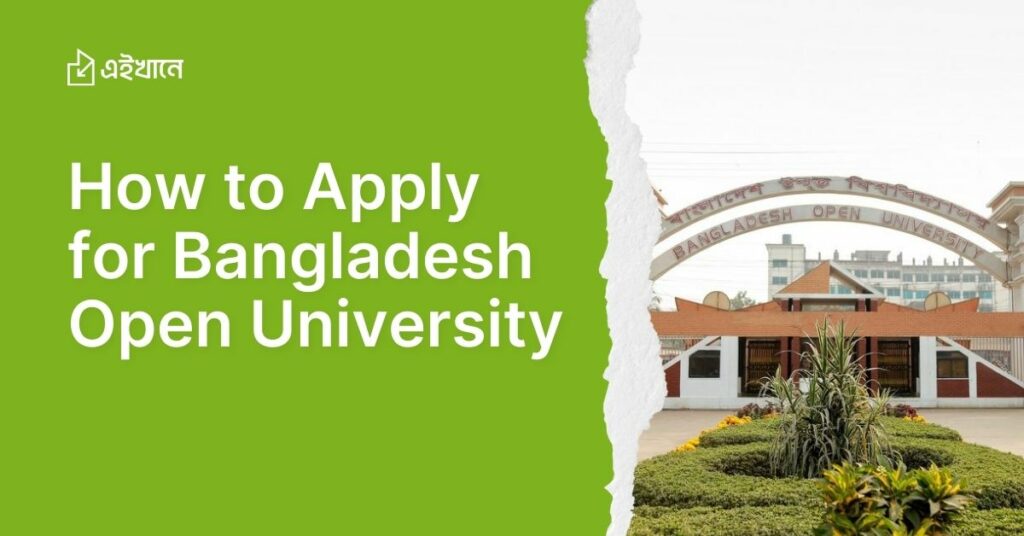Everything You Need to Know About Legal Education Requirements in Bangladesh
Obtaining a Law Degree
The first step to becoming a lawyer in Bangladesh is earning a law degree (LL.B.). Students can pursue either a 4-year LL.B. program from a recognized university or opt for a 2-year LL.B. program if they have previously completed a bachelor’s degree in another subject. Most universities in Bangladesh offer law programs that are regulated by the University Grants Commission of Bangladesh (UGC). It is important to ensure that the program is accredited, as only graduates from accredited institutions are eligible to move forward with legal practice.
Types of Law Degrees
In Bangladesh, there are primarily two types of law degrees: a Bachelor of Laws (LL.B.) and a Master of Laws (LL.M.). The LL.B. is the essential qualification required to practice law in the country, whereas the LL.M. is an advanced postgraduate course for those who want to specialize in a particular area of law. While it is not mandatory to complete an LL.M. in order to practice, it can be beneficial for those seeking academic or specialized legal careers.
Course Curriculum and Structure
The curriculum for law degrees in Bangladesh includes a range of subjects such as Constitutional Law, Criminal Law, Contract Law, Tort Law, and Civil Procedure. Typically, students also study Family Law and Jurisprudence, among other core courses. Many universities also offer optional electives focusing on specialized areas like Intellectual Property, International Law, and Human Rights Law. Practical training, such as moot court sessions and internships, is often integrated into the curriculum to help students gain practical legal skills.
Legal Education at Public vs. Private Institutions
In Bangladesh, legal education can be pursued at both public and private universities. Public universities, like the University of Dhaka, are often more affordable but might have higher admission competition due to limited seats. On the other hand, private universities offer flexible options and modern facilities, though typically at a higher cost. Whichever path students choose, they must ensure the institution is duly accredited and recognized by the Bar Council for practicing law.
Bar Council Approval and Recognition of Foreign Degrees
Students who have obtained their law degrees from foreign institutions must ensure that their qualifications are recognized by the Bangladesh Bar Council. Countries like the UK, Australia, and Canada have several law schools whose degrees may be accepted, but students should consult with the Bar Council before pursuing foreign studies. Graduates may be required to complete additional training or pass equivalency exams before being permitted to practice law in Bangladesh.
Eligibility for Enrollment as an Advocate
Once a student has completed their LL.B. degree from a recognized institution, they must be eligible for enrollment as an advocate under the Bangladesh Bar Council. This process includes passing the rigorous Bar Council examination, which assesses a candidate’s comprehensive understanding of various fields of law, as well as their ethical competence. Only after successfully completing this examination can a legal graduate be enrolled as an advocate, thus allowing them to formally practice law in the courts of Bangladesh.
Top Law Schools and Universities to Study Law in Bangladesh
University of Dhaka – Faculty of Law
The University of Dhaka’s Faculty of Law is considered one of the most prestigious institutions for legal education in Bangladesh. Established in 1921, it offers comprehensive LL.B. and LL.M programs that cover a wide range of legal disciplines, including constitutional law, international law, and human rights law. The faculty is known for its experienced professors and its rich history of producing many of the nation’s finest legal professionals.
BRAC University – School of Law
BRAC University’s School of Law has made a name for itself as one of the leading private institutions offering quality legal education in Bangladesh. Its multidisciplinary approach integrates law with economics, politics, and business, giving students a well-rounded perspective. The curriculum focuses on contemporary legal challenges and is designed to prepare students for both national and international legal careers. BRAC also encourages practical learning through moot courts and legal aid clinics.
Rajshahi University – Department of Law
Rajshahi University is another prominent public institution where students can pursue a law degree. Its Department of Law offers both undergraduate (LL.B.) and postgraduate (LL.M.) programs, emphasizing not only theoretical knowledge but also practical training in the form of internships and legal clinics. The department is renowned for its focus on legal research and scholarship, contributing significantly to legal discourse in Bangladesh.
Jahangirnagar University – Department of Law & Justice
Jahangirnagar University’s Department of Law and Justice offers robust academic programs targeting those interested in various branches of law. Students are exposed to both foundational and specialized fields such as environmental law, labor law, and cyber law. The department maintains high admission standards and molds students to be ethical and competent lawyers ready to serve in both domestic and international courts.
North South University – Department of Law
As one of Bangladesh’s leading private universities, North South University (NSU) offers a dynamic Department of Law that aims to provide high-quality education with a global outlook. The curriculum includes modern subjects like intellectual property law, international trade law, and corporate law, making it a popular choice for aspiring lawyers who want to enter the business and commercial law sectors. NSU also provides ample opportunities for international exposure through exchange programs and external competitions.
Bangladesh University of Professionals (BUP) – Faculty of Security & Strategic Studies (FSS)
The Department of Law at the Bangladesh University of Professionals (BUP) is part of the Faculty of Security & Strategic Studies (FSS). It is a relatively new but rapidly growing institution known for its cutting-edge legal courses and emphasis on current legal issues. The curriculum includes various modules on national security and strategy, which distinguishes it from more traditional law schools. The university often collaborates with military and governmental bodies, providing unique opportunities for research and internships in these areas.
Chittagong University – Faculty of Law
The Faculty of Law at Chittagong University is highly regarded for its commitment to producing skilled legal scholars. This public institution offers both LL.B. and LL.M. programs, focusing on core areas like criminal law, procedural law, and civil justice. With experienced faculty members and strong academic resources, Chittagong University has a long-standing reputation for contributing significantly to the legal profession in Bangladesh.
South East University – Department of Law
South East University (SEU), a leading private university, provides well-structured law programs that attract students from all over the country. Its Department of Law aims to equip students with a deep understanding of national and international legal systems, blending both theoretical instruction and practical experience. SEU also fosters an active research environment and regularly organizes seminars, workshops, and moot court competitions to enhance students’ legal skills.
Independent University, Bangladesh (IUB) – Department of Law
Independent University, Bangladesh (IUB) offers a law department that stands out due to its innovative course offerings and practical learning opportunities. Courses such as corporate governance, environmental law, and human rights law reflect IUB’s emphasis on producing globally minded legal professionals. The university also promotes community service and internships as part of the curriculum, encouraging students to apply their legal knowledge in real-world contexts.
American International University-Bangladesh (AIUB) – Department of Law
AIUB’s Department of Law provides a modern, business-focused approach to legal studies, preparing students for roles in corporations, law firms, and government agencies. The curriculum covers essential topics like business law, contract law, and arbitration, which are particularly relevant for those aiming for a corporate legal career. AIUB promotes experiential learning by facilitating internships at top law firms and organizations across the country.
Understanding the Bar Council Enrollment Process for Bangladeshi Lawyers
What is the Bangladesh Bar Council?
The Bangladesh Bar Council is the statutory body that regulates the legal profession in the country. It is responsible for ensuring the professional competence and ethical conduct of lawyers. A law graduate must be enrolled with the Bar Council to be recognized as an advocate, permitting them to practice law professionally in the courts of Bangladesh.
Eligibility Criteria for Bar Council Enrollment
To be eligible for enrollment, a candidate must have completed an LL.B. degree from a recognized university. Foreign law graduates must ensure their degrees are recognized, and they may need to pass an additional equivalency exam. Candidates must also meet the necessary age requirement and submit proof of good moral character alongside their application.
The Bar Council Enrollment Examination
The most critical step in the enrollment process is passing the Bar Council Enrollment Examination. This rigorous exam assesses legal knowledge on various topics such as Constitutional Law, Civil and Criminal Procedure, and Evidence Law. In addition to theoretical questions, the exam tests practical skills needed for effective legal practice. The exam is designed to ensure that only qualified individuals can represent clients in Bangladeshi courts.
Application Process and Required Documents
Candidates must submit an application form available on the Bar Council’s official website, along with several required documents. These include academic certificates, national identification, proof of citizenship, and a certificate of good conduct from an advocate or judge. The applications must be submitted within the stipulated deadlines provided by the Council, and incomplete or incorrect applications may be rejected.
Advocacy Training Program
After passing the Bar Council Enrollment Examination, candidates must complete the Advocacy Training Program, which focuses on the practical aspects of being an advocate. This includes instruction in courtroom procedures, drafting legal documents, and ethics in the legal profession. The training is usually mandatory and must be completed before a candidate can be fully registered as an advocate.
Enrollment as an Advocate
Once a candidate successfully passes the examination and completes the necessary training, they can apply for formal enrollment as an advocate. After obtaining the Certificate of Enrollment from the Bar Council, advocates are officially allowed to appear and practice before any court in Bangladesh. Advocates must also regularly renew their licenses by meeting continuous professional development requirements outlined by the Bar Council.
Continuing Legal Education (CLE) Requirements
Practicing lawyers are often required to undergo Continuing Legal Education (CLE) to stay updated with changes in the law and maintain the skills necessary for effective practice. The Bar Council may periodically mandate CLE programs covering various legal topics and ethics training. Regular participation in these programs helps lawyers maintain their status as active and competent practitioners.
Complete Guide: From Law Student to Licensed Attorney in Bangladesh
Securing Your LL.B. Degree
Becoming a lawyer in Bangladesh begins with obtaining your Bachelor of Laws (LL.B.) degree from a recognized institution. Whether you choose a public or private university, the degree is essential for taking the next steps toward becoming an advocate. You can either pursue a four-year LL.B. directly or opt for a two-year program if you already hold a bachelor’s degree. The Bangladesh Bar Council only recognizes graduates from accredited institutions, so it is crucial to ensure your LL.B. program meets this requirement.
Preparing for the Bar Council Enrollment Examination
After completing the LL.B., the most important milestone is passing the Bar Council Enrollment Examination. This examination tests your knowledge of key legal subjects, including Constitutional Law, Civil Procedure, and Criminal Law. It is designed to assess whether candidates have the academic and practical skills necessary to practice law professionally. Preparation for this exam should include both theoretical study and practical legal skill-building exercises such as moot courts and internships.
Completing the Advocacy Training Program
Once you pass the Bar Council Enrollment Examination, you must enroll in and complete the mandatory Advocacy Training Program. This program focuses on imparting essential courtroom skills, drafting legal documents, and teaching professional ethics. It serves as a transition from theoretical education to the practicalities of being a lawyer. Successful completion of this training qualifies you to apply for formal enrollment as an advocate in Bangladesh.
Applying for Enrollment as an Advocate
Upon successful completion of the Advocacy Training Program, you are eligible to formally apply for enrollment with the Bangladesh Bar Council. The application process requires submission of various documents, including your academic certificates, proof of citizenship, and a certificate of good moral character. Once approved, you will receive an Enrollment Certificate, officially recognizing you as an advocate permitted to practice law in Bangladeshi courts.
Start Practicing Law
After receiving your Certificate of Enrollment, you can start practicing law in any court in Bangladesh. It is common for new advocates to begin their careers by working under the mentorship of seasoned lawyers or joining law firms. Gaining practical experience in courtrooms, drafting legal documents, and handling clients is essential for building a successful legal career.
Maintaining Your License Through Continuing Legal Education (CLE)
To maintain your active status as an advocate, it is necessary to fulfill the Continuing Legal Education (CLE) requirements set forth by the Bangladesh Bar Council. These programs ensure that advocates stay updated on changes in the law, enhancing their competency and ethical standards. Participation in CLE is crucial for renewing your license and continuing to practice as a lawyer in Bangladesh.
Career Advancements and Specializations
After gaining experience in general legal practice, many advocates opt to specialize in specific areas of law such as corporate law, family law, or constitutional law. Further studies, like an LL.M., or attendance at specialized workshops and conferences, can help you develop expertise in these fields. Specialization can open doors to higher-level roles in law firms, governmental bodies, academia, or even international law organizations.
Essential Skills and Qualifications Required for Legal Practice in Bangladesh
Strong Analytical and Critical Thinking Skills
One of the most essential skills for any aspiring lawyer in Bangladesh is the ability to think critically and analytically. Lawyers must analyze complex legal materials, identify issues, and interpret laws to build strong cases for their clients. Whether conducting research or arguing in court, sharp analytical abilities enable lawyers to break down complicated facts and craft effective arguments.
Proficiency in Legal Research and Writing
Legal research and writing are critical components of legal practice. Lawyers must have the ability to efficiently research statutes, precedents, and case law to support legal opinions and arguments. Effective legal writing, such as drafting suits, petitions, affidavits, contracts, and legal advice, is also a crucial skill. Precision and clarity in documentation are paramount to successfully presenting a client’s position in court or negotiations.
Oral Advocacy and Communication Skills
A successful lawyer needs strong oral advocacy and communication skills. Lawyers regularly represent their clients in court, negotiate settlements, and provide legal counsel. As such, they must be capable of speaking clearly and persuasively to judges, opposing counsel, and clients. Mastering this skill is vital for articulating legal points effectively in trials, hearings, and public speaking engagements.
Knowledge of Both Statutory and Case Law
To be an effective lawyer in Bangladesh, it is critical to have a thorough understanding of both statutory law (legislation passed by the government) and case law (judicial decisions). Legal professionals must be able to interpret written laws and regulations while keeping updated with evolving case law that may impact their practice. A lawyer’s knowledge of legal precedents will play a significant role in shaping their legal strategies.
Competency in National and Local Laws
Legal systems vary at different levels, so it is important that lawyers practicing in Bangladesh are well-versed in both national laws and local provincial or district laws. Many aspects of Bangladeshi law, such as property rights, family law, and criminal cases, can differ depending on regional administrations. Lawyers must be competent in navigating these differences to ensure comprehensive legal coverage for their clients.
Ethical Integrity and Professional Responsibility
Ethical behavior is a cornerstone of good legal practice. Lawyers in Bangladesh are required to adhere to the ethical guidelines set out by the Bangladesh Bar Council. Advocates must uphold principles of honesty, confidentiality, and fairness in all legal matters. Breaching these ethical standards can lead to disciplinary actions, including suspension or loss of legal practice rights.
Understanding Court Procedures and Litigation Strategy
Knowing how the court system works and having a strategic mindset for litigation are key qualifications for practicing law in Bangladesh. Lawyers must understand court structures, filing processes, and hearing procedures to effectively represent their clients. This also includes having the ability to craft litigation strategies to anticipate opposing counsel’s moves, ensuring that cases are navigated efficiently through the judicial system.
Advanced Interpersonal and Negotiation Skills
Lawyers often work closely with clients, other attorneys, and judges, which requires strong interpersonal skills. Building trust with clients and maintaining professional relationships with colleagues is vital for career success. Additionally, negotiation skills are critical for settling cases outside of court, resolving disputes, and reaching amicable agreements between opposing parties.
Familiarity with International Law and Cross-Border Regulations
Given the increasing globalization of legal practice, familiarity with international law and cross-border regulations can be advantageous for lawyers in Bangladesh. Lawyers dealing with trade, corporate law, international human rights, or immigration cases need knowledge of treaties, agreements, and conventions that go beyond domestic laws. Specializing in international law opens opportunities for working on transnational cases and collaborating with international organizations.
Technological Competence in Legal Tools
As the legal industry becomes more digitized, technological competence is now a requirement for modern legal practice. Lawyers need to be familiar with legal research databases, electronic court filings, and document management systems. Additionally, knowledge of emerging technologies, including artificial intelligence in legal analytics and cybersecurity laws, will continue to shape the legal profession in Bangladesh.


